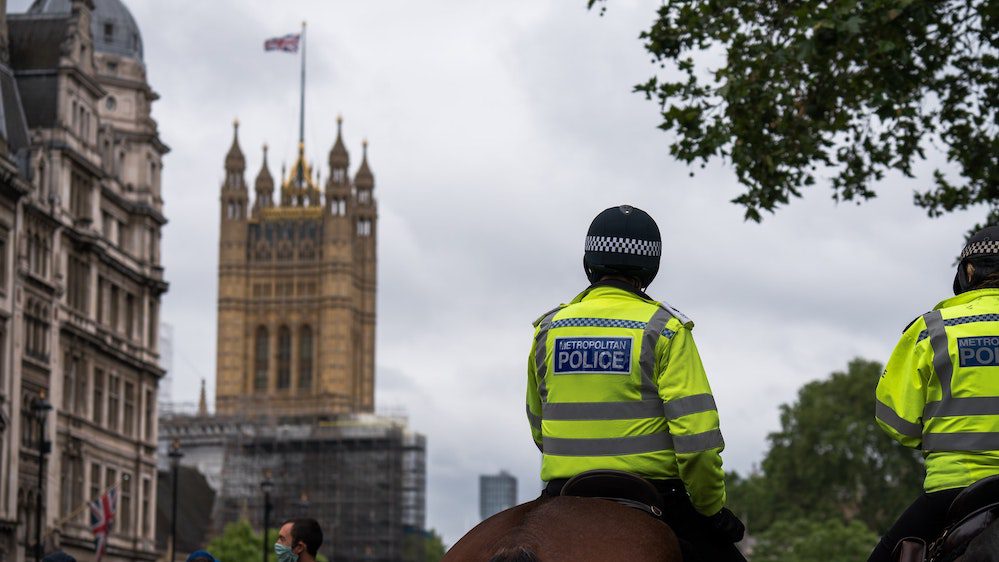
On 11 September 2001, America was hit by a coordinated attack by 19 al Qaeda-inspired Islamic terrorists. Two planes flew into the Twin Towers of the World Trade Center in New York, one hit the Pentagon in Washington, D.C, and the fourth plane was believed to have been forced down by passengers, crashing in a field in Pennsylvania. Nearly 3,000 people were murdered.
Four years later, on 7th July 2005 in London, four Islamic terrorists, again inspired by al Qaeda, detonated homemade bombs at Edgware Road, Aldgate, and Russell Square tube stations, and the 30 bus in Tavistock Square. Fifty-two people died and 700 were injured.
The bombers Mohammad Sidique Khan, Hasib Hussain, and Shehzad Tanweer were all British citizens with Pakistani parents. Germaine Maurice Lindsay, a Muslim convert, also known as Abdullah Shaheed Jamal, was of Jamaican heritage, who came to Britain at the age of five.
The government was dismayed that people born or brought up in Britain could have such extreme, violent views and set out to identify extremists and counsel them into more rational thinking. Hence the Prevent programme was established within a year of the 2005 atrocities.
However, 17 years later, the British Home Office’s Prevent programme not only seems ineffective in its efforts to de-radicalise extreme Muslims, has actually led to public money being given to groups that have promoted Islamic extremism. The Prevent programme frames its mission as: “to prevent vulnerable people being drawn into criminal behaviour.” The website continues: “The government-led, multi-agency Prevent programme aims to stop individuals becoming terrorists and police play a key role.” Also included in its purview are the extreme-right, and others with “mixed, unstable or unclear” ideologies.
In 2021, William Shawcross was appointed the new independent reviewer of Prevent. His report has not yet been published—instead, widely leaked—despite having been completed in the summer of 2022. It seems that Secretary of State for Levelling Up, Housing, and Communities and Minister for Intergovernmental Relations Michael Gove and Home Secretary Suella Braverman disagree about redacting names and organisations from the report. Gove claims the report could expose the government to libel. Others point to embarrassing levels of incompetence, as the Prevent programme has had some notable—and notorious—failures.
Member of Parliament Sir David Amess was murdered by Somali Muslim Ali Harbi Ali while conducting a constituency surgery (one-to-one meetings that political officeholders have with their constituents). According to The Guardian,
Ali was being radicalised in 2014 at the same time as he was going through the Prevent anti-radicalisation scheme. The Guardian understands that in 2015, while Ali was becoming an adherent of terrorist violence, Prevent concluded he did not pose a significant danger and his case was closed.
Usman Khan, 28, stabbed two people to death at the Fishmongers’ Hall near London Bridge in 2019. He had been released from prison one year earlier and was being constantly monitored by Prevent officers. Prison chaplain, the Reverend Paul Foster, befriended Khan and believed he was rehabilitated. However, at the inquest, he noted that Kahn; “was obviously presenting himself in a way that was likely to deceive the likes of myself and others.” He added: “I’m open to say I am wrong, and it is possible I have been conned.” The Telegraph documented at least 40 missed warning signs that could have prevented this attack.
In 2020, Khairi Saadallah stabbed 3 men to death in a Reading Park, “[believing] that in killing as many people as possible that day he was performing an act of religious jihad,” according to Sky News. The Reading Refugee Support Group warned Prevent officials Saadallah could carry out a “London Bridge-style attack,” but was discounted as a terror risk by Prevent because he had “no fixed ideology.”
Iraqi asylum seeker Ahmed Hassan entered Parsons Green station with a homemade bomb in 2017. Despite failing to explode properly, 30 people were injured. Referred to the Prevent programme 18 month earlier, he planned his attack while being counselled.
Ten years after the Prevent programme started, an ICM/Channel4 poll on Muslim social attitudes was not encouraging. Only “34% would inform the police if they thought somebody they knew was getting involved with people who support terrorism in Syria.” Additionally, “32% refuse to condemn those who take part in violence against those who mock the Prophet,” and “23% of Muslims would prefer to live under Shariah Law.” This leaves Britain in a dilemma. As 45,000 mainly Muslim migrants crossed the English Channel, undocumented, many terrorists may have slipped through incognito. While Britain’s internal secret service MI5 seems to be doing a competent job in tracking down terrorists, with 37 late-stage terrorist acts thwarted since 2017, the Prevent programme seems to be, at the very least, in need of serious reform. Until the Shawcross report is released, we won’t know how badly it is broken.
